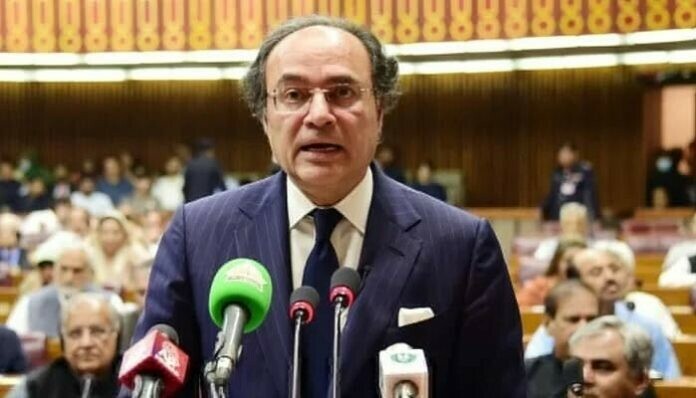Federal Finance and Revenue Minister Senator Muhammad Aurangzeb on Monday said the new leadership at the Competition Commission of Pakistan (CCP), appointed in August 2023, has implemented critical reforms to enhance the regulator’s effectiveness and enforcement capacity.
Responding to a Senate motion raised by Senator Mohsin Aziz regarding CCP’s performance, Aurangzeb cautioned that cartelization, insider trading, and other unfair market practices pose serious threats to Pakistan’s economic stability. He reaffirmed the government’s commitment to eliminating such activities and strengthening market integrity.
The finance minister underscored the importance of a strong and independent regulatory framework that protects both investors and consumers. While he stressed the private sector’s role as the primary engine of economic activity, he emphasized that effective oversight and checks and balances are essential to maintain transparency and public confidence.
Aurangzeb called for the Senate Standing Committee on Finance to summon the CCP chairman for a detailed briefing on the institution’s recent progress, noting that a performance report would help assess the Commission’s direction under its current leadership.
Presenting performance data, he revealed that the CCP has resolved 224 out of 567 court cases over the past two years, successfully clearing more than half of its backlog. Since the new management took office in August 2023, the Commission has issued 11 major enforcement orders and recovered PKR 120 million in fines.
The minister also highlighted the establishment of two new CCP units: a Market Intelligence Unit (MIU) and a Center of Competition Research, both of which use artificial intelligence and data analytics to monitor market dynamics and flag anti-competitive behavior. These efforts, he said, are helping CCP adopt global best practices while ensuring policy and enforcement decisions are rooted in evidence.
The Commission has shifted toward proactive enforcement, identifying 170 potential violations across 28 economic sectors, including real estate, telecommunications, banking, and e-commerce. In addition, the CCP disposed of 17 merger and acquisition cases and granted 83 regulatory exemptions, largely in the pharmaceutical, energy, and banking sectors.
Turning to broader economic indicators, Aurangzeb said that inflation has fallen from 38% to single digits, accompanied by reductions in the policy rate and markup costs. He noted that price monitoring remains a top priority for both the Economic Coordination Committee (ECC) and the Price Monitoring Committee, with ongoing coordination with provincial authorities.
Responding to opposition concerns over recent increases in sugar prices, the finance minister challenged PTI senators to explain the outcomes of the sugar scandal inquiry initiated under their tenure. He questioned what punitive action had been taken against those found responsible, signaling the current government’s intent to hold past and present violators accountable.




